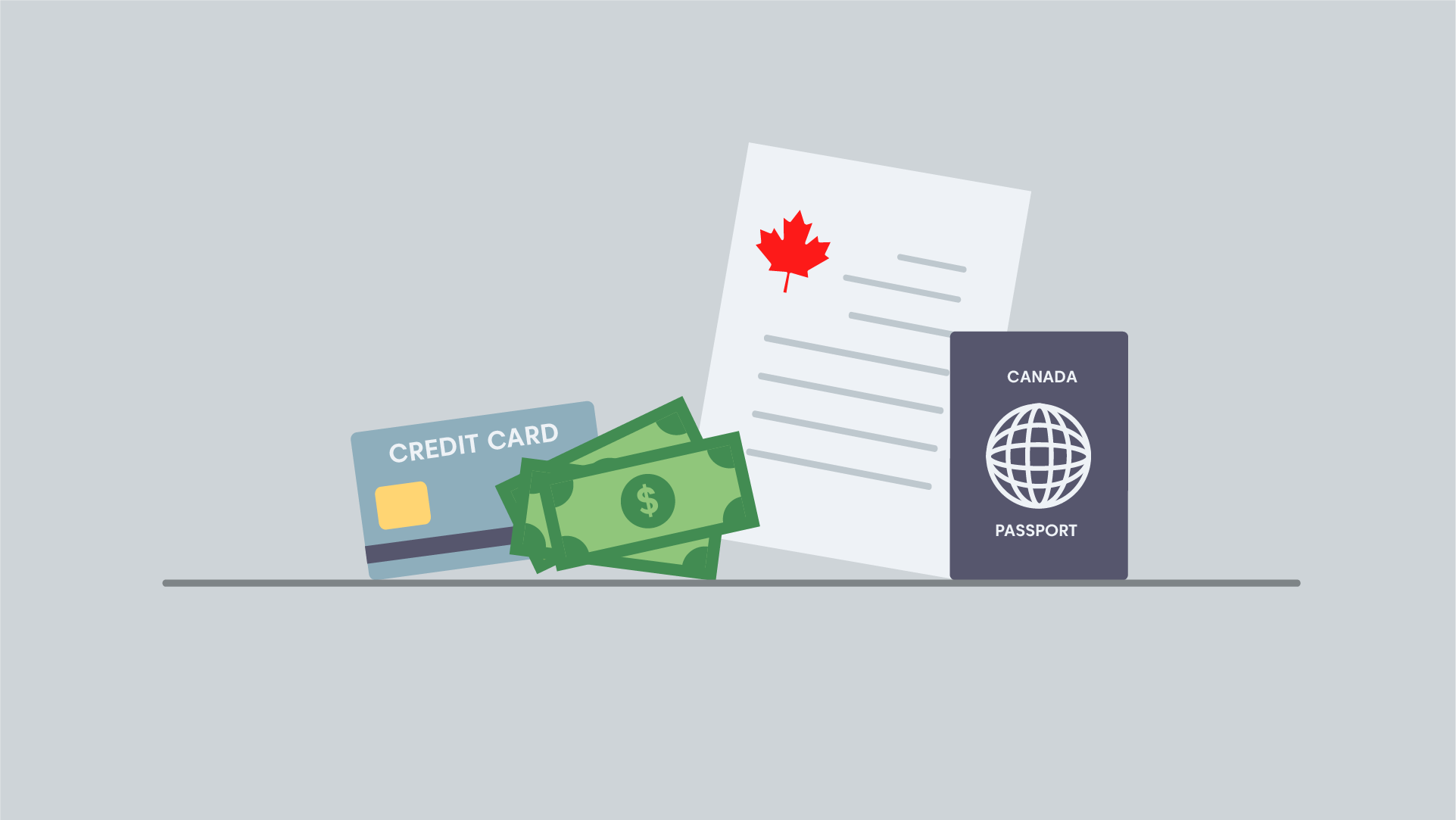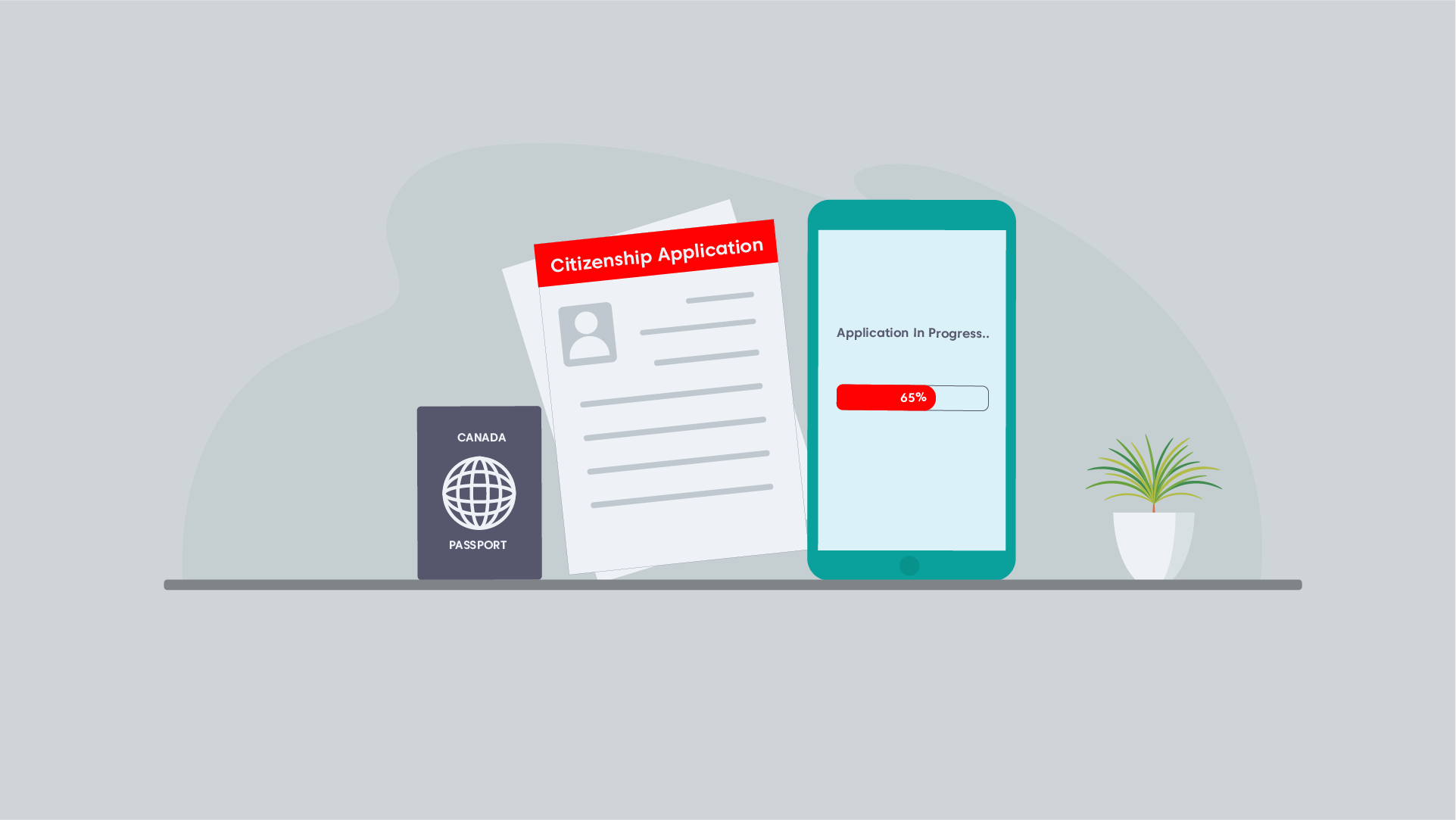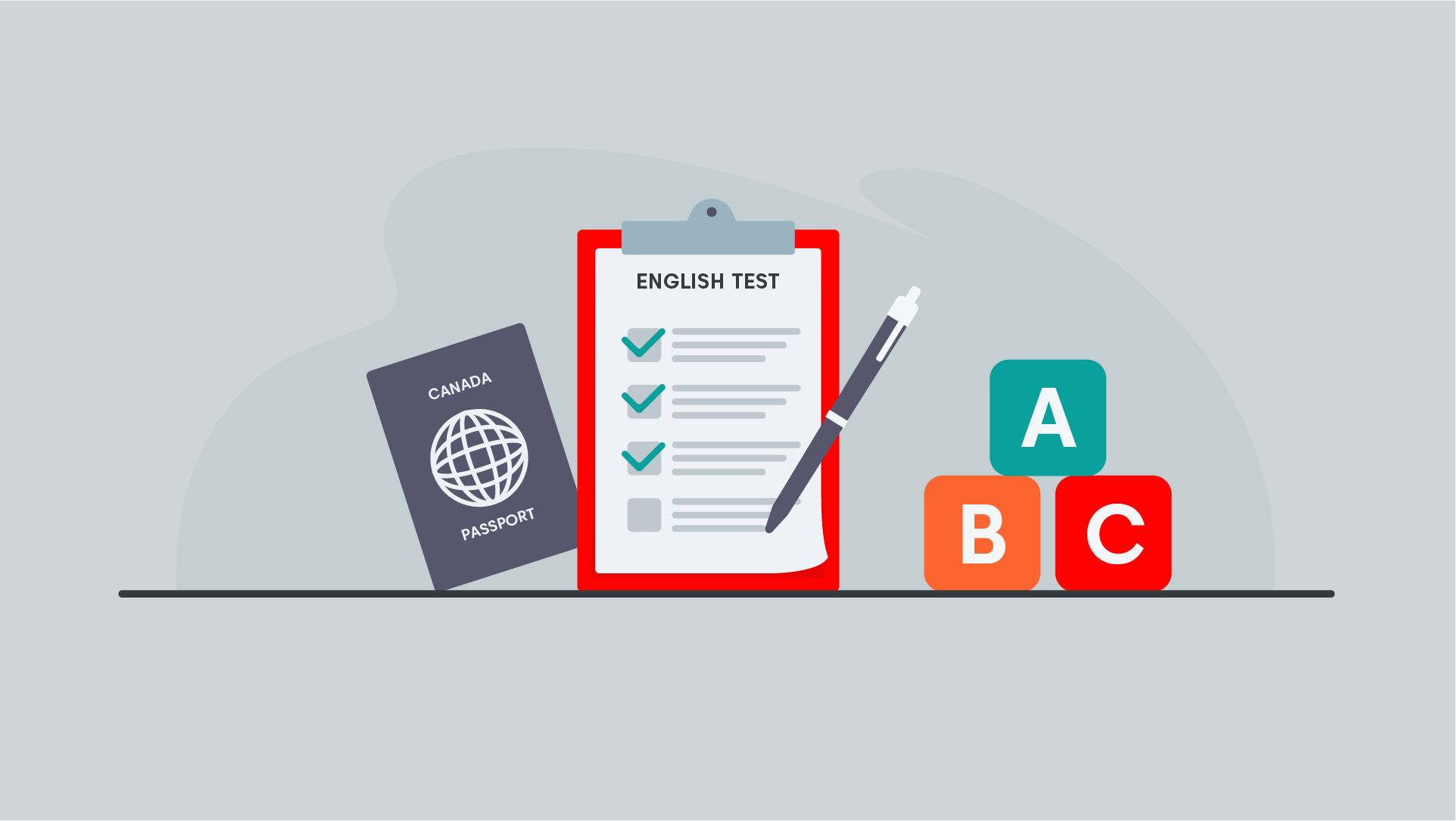How to Become a Canadian Citizen: What You Need to Know
By Umme Hani on Oct 21, 2024
Becoming a Canadian citizen offers numerous advantages, from the right to vote to the opportunity to hold a Canadian passport, making travel easier and more secure. For many, the question is not just how to become a Canadian citizen but also how long do you have to live in Canada to become a citizen. If you’ve wondered how to become a Canadian citizen, just know that the journey involves more than just meeting the residency requirement. The process involves meeting specific eligibility criteria, getting through multiple steps, and much more.
So, stick with us as we walk you through everything you need to know about becoming a Canadian citizen.
What You Need to Know About Canadian Citizenship
Before you can become a Canadian citizen, it's important to understand what citizenship entails and how it differs from permanent residency.
Types of Canadian Citizenship
In Canada, you can either be a natural-born citizen or a naturalized citizen. Natural-born citizens are those born in Canada or abroad to Canadian parents. On the other hand, naturalized citizens go through the formal application process to gain citizenship.
Citizenship vs. Permanent Residency
Many people confuse permanent residency with citizenship. Although both statuses allow you to live, work, and study in Canada, there are key differences. Permanent residents have the right to live in Canada indefinitely, but they are not able to vote in federal elections, hold certain government jobs, or get a Canadian passport. Citizens, however, enjoy these privileges and have no residency requirements to maintain their status. Permanent residents must live in Canada for a certain amount of time to keep their residency valid, but citizens do not face such restrictions.
Eligibility Requirements
If you're eager to become a Canadian citizen, the first thing to do is understand whether you qualify. Canadian citizenship has a few clear eligibility requirements that applicants must meet before starting the process. Let's break these down so that everything is easy to follow.
General Criteria
To apply for Canadian citizenship, you must:
- Be at least 18 years old
- Hold permanent resident status in Canada
- Have lived in Canada for a certain period as a permanent resident
If you're applying for a child under 18, the child's parent or legal guardian must also apply with them. Moreover, the child must already be a permanent resident.
Residency Requirements
One of the requirements for becoming a Canadian citizen is proving that you've spent enough time living in Canada. The current rule is that you must have been physically present in Canada for at least 1,095 days (3 years) out of the last five years before your application date. But remember, only time spent as a permanent resident counts toward this requirement.
There’s a simple way to calculate this—use the physical presence calculator provided by the government to ensure you meet the 1,095-day rule. And don’t forget, time spent abroad while serving in the Canadian Armed Forces or accompanying a spouse who is a Canadian citizen may also count toward this requirement!
Language Proficiency
Canada has two official languages—English and French. You must demonstrate your ability to communicate in one of these languages. This means being able to speak and understand basic conversation, write short statements, and have a grasp of everyday vocabulary.
If you’re between 18 and 54, you’ll need to submit proof of language proficiency. Accepted tests include:
- Canadian English Language Proficiency Index Program - CELPIP
- International English Language Testing System - IELTS
- Test d'évaluation de français - TEF Canada
If you completed education in English or French, that might also count as proof of your language skills.
Knowledge of Canada
To become a Canadian citizen, you must pass the Canadian citizenship test, which covers various topics about Canada's history, geography, government, and values. This test demonstrates your understanding of the country you’re about to become a part of.
The test consists of multiple-choice questions; you need a 75% score to pass. It’s not as intimidating as it sounds—plenty of resources like study guides and practice tests help you prepare.
Criminal History Considerations
Canada takes citizenship seriously, so having a criminal record or being involved in certain criminal activities can affect your application. If you’ve committed serious crimes, are currently on parole, or have violated immigration laws, you may not be eligible to apply for citizenship.
Additionally, if you’re on probation or have been ordered to leave Canada, your application will likely be delayed or denied. You must have a clean record and comply with Canadian law while applying.
Steps to Apply for Canadian Citizenship
If you’re considering how to become a Canadian citizen, it’s important to understand each step of the application process. Here’s a detailed guide on how to become a citizen of Canada and how long it takes to become a Canadian citizen.
Step 1: Gather Required Documents
Before applying, you need to collect various documents that prove your eligibility. These include:
- Proof of Permanent Residence: You must be a permanent resident of Canada, which means you hold a valid Permanent Resident (PR) Card or other documents that prove your PR status.
- Travel Documents: This includes your passport and any other travel documents that cover the time you have been in Canada. These documents help calculate how long do you have to live in Canada to become a citizen, as they verify your physical presence.
- Language Test Results: Applicants between 18 and 54 must demonstrate proficiency in English or French. Accepted tests include CELPIP or IELTS.
- Tax Records: You’ll need proof that you have filed income taxes in Canada for at least three of the past five years.
Step 2: Complete the Application Form
Once your documents are ready, you need to fill out the citizenship application form accurately. You can download this form from the IRCC website. This form will ask for details like your address, employment, and travel history during your time in Canada. It’s important to fill in every section carefully to avoid delays or rejection.
Step 3: Pay the Application Fees
An application processing fee must be paid to IRCC. The total fee for adult applicants is currently around CAD $630, which includes a processing fee and a right of citizenship fee. For minors, the fee is lower, around CAD $100. Keep a copy of your payment receipt, as you’ll need it when submitting your application. While the cost may seem steep, considering the many benefits of being a Canadian citizen, it's a small investment. Learn more about the Canadian citizenship cost here.
Step 4: Submit Your Application
After completing the form and gathering all necessary documents, it’s time to send everything to the IRCC. Your application must be complete before submission, as incomplete applications will be returned. You can submit your application online (if eligible) or by mail. Once submitted, you’ll receive an acknowledgment of receipt, allowing you to track your application status online through the IRCC website. This tracking tool helps you stay informed about how long to become a Canadian citizen, from the time you apply to the time you get a decision.
How Long Does It Take to Process the Application?
If you’re curious about how long it takes to become a Canadian citizen, processing times can vary. Generally, it takes about 12 months from the time you submit your application to the time of your citizenship ceremony. However, this timeline can be longer if additional information is needed or if there is a backlog of applications.
How to Track Your Application Status
After submitting your Canadian citizenship application, one of the most important things you can do is keep track of its progress. The IRCC offers an online tracking tool that allows you to monitor the status of your application from start to finish.
Step 5: Prepare for the Citizenship Test
Once your application is accepted, most applicants between 18 and 54 must take and pass a citizenship test. This test evaluates your knowledge of Canada’s history, political system, geography, and rights and responsibilities as a citizen. Study guides and practice questions are available through the IRCC website to help you prepare.
Format and Types of Questions
The citizenship test is a 20-question multiple-choice and true/false exam. It can be taken in English or French, depending on your preference. The questions cover various topics such as Canadian history, geography, political institutions, symbols, and citizens' rights and responsibilities.
To pass, you must answer at least 15 out of 20 questions correctly, which translates to a score of 75%. Depending on IRCC’s current guidelines, it is administered in person or online. If taking the test online, you’ll have 30 minutes to complete it in a monitored environment.
Study Resources
Discover Canada
This is the official study guide provided by IRCC, covering everything you need to know for the test. It’s available for free online, and you can also request a physical copy.
Online Resources
Websites like the IRCC website and various educational platforms offer additional reading materials, summaries, and study aids.
Free Practice Tests
Practice tests are your best bet for familiarizing yourself with the format of the Canadian citizenship knowledge test. Many online platforms, including the IRCC website, offer sample practice tests based on Discover Canada.
Understanding the Canadian Citizenship Test Format and Timing
- Familiarize yourself with the 20-question format and take multiple practice tests to build comfort with the structure and time limits.
- Focus on understanding rather than just memorizing information, as some questions may require you to apply knowledge rather than just recall facts.
- Review explanations for mistakes made during practice tests to make sure you grasp the concepts behind each question.
Step 6: Attend an Interview (If required)
After the test, you may be invited to an interview with a citizenship official, particularly if there are questions about your application or test results. The interview is a chance for the official to verify your documents and language ability. It’s important to be honest and thorough during this stage, as it plays a role in the final decision on how to be a Canadian citizen.
What to Expect in the Canadian Citizenship Interview
Overview of the Interview Process
The citizenship interview usually takes place right after you complete the test, especially if you take it in person. The interview may be scheduled separately for those who take the test online. This interview is conducted with an IRCC officer, who will review your application and documents to confirm their accuracy.
The interview lasts about 30 minutes and may be held in person or virtually. During this time, the officer will verify your identity and documents, assess your language skills, and ask questions to confirm the information you provided in your application.
Types of Questions Generally Asked
The officer may ask about your background, work or study history, and reasons for wanting to become a Canadian citizen. You might also be asked about your understanding of Canada’s values, culture, and political system. Most of this will be based on the Discover Canada study guide.
Questions could include: “What do you enjoy most about living in Canada?” or “What are some of the responsibilities of being a Canadian citizen?” These questions help gauge your commitment to becoming a Canadian citizen.
Preparing for the Interview
Tips for Answering Questions Confidently
- Practice speaking about your background, residency in Canada, and knowledge of the country’s culture and values with friends or family members. This can help you feel more comfortable when speaking with the citizenship officer.
- Be clear and concise in your responses, and listen carefully to each question before answering. It’s okay to take a moment to gather your thoughts before responding.
- Maintain a positive and respectful attitude throughout the interview. Remember, the officer is there to help ensure your application process is fair and thorough.
Step 7: Waiting for the Decision
After submitting your application, you’ll find yourself eagerly awaiting the decision on whether you can become a Canadian citizen. Processing times can vary depending on several factors. So, you must try to be as patient as possible!
If there are delays, don't panic! You can take steps like contacting IRCC for an update or reviewing your application. Delays can be frustrating, but most of the time, they’re simply part of the process.
Step 8: Get Your Results
Once the waiting time is over and your inbox lights up with an email from the IRCC, expect to face two situations: approved or rejected.
So, what should you do in either situation?
If Your Application is Approved
Once your Canadian citizenship application is approved, congratulations! You’re a step closer to becoming a Canadian citizen. But before you can officially call yourself Canadian, there are a few final steps to complete.
-
The Oath of Citizenship Ceremony
The final and perhaps most meaningful step in becoming a Canadian citizen is taking the Oath of Citizenship. This is a special ceremony where new citizens gather to make a formal pledge to Canada. Here’s what you can expect:
- An invitation with the date and location of the ceremony.
- At the ceremony, you’ll recite the oath, pledging loyalty to the country and commitment to its laws.
- Once you take the oath, you’ll receive your Certificate of Canadian Citizenship. This marks the moment you officially become a Canadian citizen.
This moment is more than a formality—it’s a symbol of your new identity and your role in Canadian society. It’s a proud and emotional occasion for many.
-
Post-Citizenship Steps
Here’s what to do after the ceremony:
- Apply for a Canadian passport: One of the top benefits of being a Canadian citizen is the ability to obtain a Canadian passport. This will allow you to travel more freely around the world, with visa-free or visa-on-arrival access to many countries. To apply, you’ll need your citizenship certificate and supporting documents like proof of identity.
- Update your status with government agencies: Now that you’ve officially become a citizen, it’s important to update your status with various government agencies. This includes updating your social insurance number, healthcare coverage, and tax information.
Completing these steps will allow you to fully embrace your new identity as a Canadian citizen and enjoy the many rights and privileges that come with it.
If Your Citizenship Application is Rejected
While the goal is to become a Canadian citizen successfully, there’s always a possibility that your application could be rejected. Don’t worry—this doesn’t mean the end of your journey. Understanding the reasons for rejection and the steps you can take afterward will help you get back on track.
Common Reasons for Rejection
Applications can be denied for a variety of reasons, such as:
- Incomplete application
- Failure to meet residency requirements
- Language or knowledge test failure
- Criminal history
What to Do If Your Application Is Rejected
If you receive a rejection letter, it’s important to carefully review the reasons for denial. In many cases, there are opportunities to appeal the decision or reapply. Here are your options:
- Request for Reconsideration: If you believe the decision was made in error, you can request that IRCC reconsider your application. For this, you must submit a formal request with supporting evidence. The point is to show why your application should be reviewed again.
- Correct the issues and reapply: Sometimes, rejections are due to simple oversights like missing documents or not meeting language requirements. You can address the issues mentioned in the rejection letter and reapply when everything is in order.
While rejection can be disheartening, it’s just another step in the journey. Many applicants successfully reapply and go on to take the Oath of Citizenship, so don’t worry too much. The important thing is to stay focused and not give up!
Rights and Responsibilities of Canadian Citizens
Once you become a Canadian citizen, you gain access to various rights and responsibilities that shape your role in Canadian society. Understanding these rights and responsibilities helps you participate in your new community and embrace what it means to be Canadian.
Rights of Canadian Citizens
-
Right to Vote and Participate in Elections
One of the most significant benefits of being a Canadian citizen is the right to vote in federal, provincial, and municipal elections. Canadian citizens can also run for public office and participate in their local and national governments.
-
Right to Hold a Canadian Passport and Dual Citizenship
Becoming a Canadian citizen offers the valuable perk of holding a Canadian passport. Additionally, Canada allows dual citizenship. This allows you to retain your current nationality while enjoying the benefits of being a Canadian. Learn more about dual citizenship here.
-
Right to Live and Work Anywhere in Canada
Canadian citizens can live and work in any province or territory without restrictions. This freedom provides opportunities for career growth, education, and personal fulfillment across the country. Unlike permanent residents, Canadian citizens are not subject to residency obligations and can live abroad without risking their status.
-
Right to Apply for Government Jobs
Some federal government jobs in Canada require citizenship as a prerequisite. Citizenship gives you access to career opportunities otherwise unavailable to non-citizens. This is an added advantage for those who have completed the process of becoming a citizen of Canada.
-
Right to Protection under Canadian Law
Canadian citizens are protected by Canadian laws, including the Canadian Charter of Rights and Freedom. This guarantees freedom of speech, religion, and equality before the law. It ensures that all citizens are treated fairly and have the same legal protections and rights, regardless of their background.
Learn more about the impressive benefits of becoming a Canadian citizen here.
Responsibilities of Canadian Citizens
-
Obeying Canadian Laws
A critical aspect of how to be a Canadian citizen involves understanding and respecting Canadian laws. This includes federal laws, provincial or territorial regulations, and municipal bylaws. Law-abiding citizens maintain the country’s peace and order.
-
Participating in the Democratic Process
While voting is a right, it’s also a responsibility. Engaging in the democratic process means staying informed about political issues and voting during elections. It also involves participating in community decision-making, such as joining local boards or attending public meetings, to help shape the community.
-
Respecting the Rights of Others
Canadian citizenship comes with the duty to respect the rights and freedoms of others. This means respecting the diverse cultural and religious practices within Canada’s multicultural society and embracing the principles of equality and inclusion. Understanding this helps new citizens integrate and contribute positively to the fabric of Canadian society.
-
Serving on a Jury When Called Upon
Canadian citizens may be called to serve on a jury as part of their civic duties. Jury service is an important part of the legal system, ensuring that peers can participate in delivering justice. This responsibility reflects a commitment to the principles of fairness and impartiality that underpin the Canadian justice system.
-
Paying Taxes
As a Canadian citizen, you have to pay federal, provincial, and local taxes. These taxes fund public services like healthcare, education, and infrastructure. This helps maintain the quality of life that many seek when considering how to become a Canadian citizen. Being diligent about filing tax returns is also part of fulfilling your responsibilities as a citizen.
Balancing Rights and Responsibilities
Establishing a balance between rights and responsibilities is essential as a Canadian citizen. While the rights provide freedom and opportunities, the responsibilities ensure that all citizens contribute to a society where everyone can thrive. This balance is at the heart of becoming a Canadian citizen and being part of a community that values fairness, respect, and shared commitment to a better future.
Canadian Citizenship Common Challenges and Solutions
The journey to Canadian citizenship comes with challenges. However, being aware of the potential hurdles and knowing how to address them can make the process smoother.
Let’s debunk some myths, explore common concerns, and offer practical tips for overcoming obstacles.
Common Concerns
Many myths and misconceptions about becoming a Canadian citizen can cause applicants unnecessary worry. Let’s clear up some of these misunderstandings and address real challenges.
Myths
- The process is impossibly difficult. Many people believe that becoming a Canadian citizen is overly complex and nearly impossible. While several steps are involved, the process is pretty streamlined as long as you meet the eligibility requirements, such as having permanent resident status and fulfilling the residency requirement of living in Canada for at least 1,095 days.
- You can lose your permanent residency status if your application is denied. This is false. If your application for citizenship is rejected, it does not affect your permanent resident status. You still retain your PR and can reapply for citizenship when you meet the requirements.
Common Hurdles
- Residency Requirement Confusion: Some applicants struggle with calculating their physical presence in Canada. Only days spent as a permanent resident count toward the 1,095-day requirement, and some exceptions (such as time spent abroad on behalf of the Canadian government) can also be considered.
- Language Proficiency Concerns: Applicants who are not native English or French speakers often worry about passing the language proficiency test. However, basic conversational skills in either language are typically sufficient to pass.
- Citizenship Test Anxiety: Many fear the Canadian citizenship test, but with adequate preparation and studying available guides, this hurdle can easily be overcome.
Tips for Overcoming Obstacles
Now that we’ve identified some common concerns, here are practical tips to help you overcome challenges in the citizenship process:
-
Stay Up to Date
Regularly check government websites for updates and review the latest Canadian citizenship guidelines. This helps you cover all your bases and meet essential requirements.
-
Use Official Resources
There are numerous official resources available to help you:
- IRCC’s website provides detailed guides, FAQs, and tools like the residency calculator.
- Practice tests help you prepare for the types of questions in the real exam.
- Language proficiency resources such as CELPIP or IELTS courses can improve your chances of passing the language requirement.
-
Seek Legal Assistance if Needed
Those facing more complicated issues can consult with an immigration lawyer or advisor. This includes issues like uncertainty around residency requirements or past legal issues.
The Bottom Line
While many people get their Canadian citizenship easily, others struggle quite a bit. However, no matter what, careful preparation, reliable resources, and perseverance can help you overcome the most common challenges and bring your struggle to fruition. Remember, thousands of people successfully complete this process every year—and you can, too!


